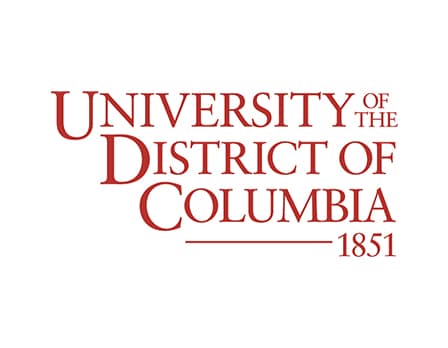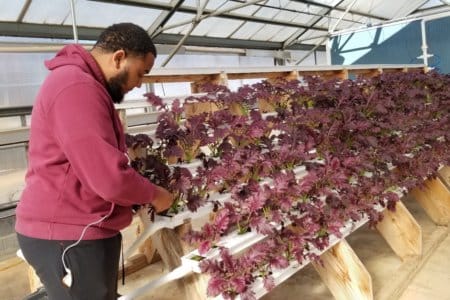At the University of the District of Columbia (UDC), students recognise the value of creating a sustainable future. Jacob Campbell was very interested in joining the fight to tackle what the UN describes as the “defining task of the 21st century”: making peace with nature.
“Urban agriculture creates food production sites and green infrastructure that can transform landscapes by helping with local food production while integrating it with the cityscape,” shares the Professional Science Master’s in Urban Agriculture graduate. “Once I saw and heard about UDC’s Urban Food Hubs, sustainability features on campus, and the Firebird Research Farm, I knew I wanted to be a part of UDC.”
A foundational component of UDC’s identity and land-grant heritage is the College of Agriculture, Urban Sustainability, and Environmental Sciences (CAUSES). Formed in 2010, the college offers research-based graduate-level academic programmes that cover Urban Agriculture; Urban Sustainability; Water Resources Management; Urban Architecture and Community Planning; and Urban Leadership and Entrepreneurship.
Learning at UDC and in CAUSES has proved eye-opening for Campbell. “Being able to learn from and eventually work with those in all sectors and with multiple disciplines makes for a much richer learning environment and enhances my ability to make key connections on the how and why certain things work together and how you can be the creator who bridges gaps,” he says.
Here are four reasons students should seriously consider pursuing a graduate degree in CAUSES:

Research-based academic and community outreach programmes at UDC improve the quality of life and economic opportunity of people and communities in the District of Columbia, the nation and the world. Source: University of the District of Columbia
1. Generous scholarships
For students planning to pursue a Professional Science Master’s (PSM) in Urban Agriculture, Urban Sustainability or Water Resources Management, UDC is offering a Graduate Tuition Scholarship from the fall of 2023 to 2025.
The scholarship awards US$5,000 each semester and students can receive up to US$20,000 in total tuition assistance. To apply, you must have completed a bachelor’s degree, obtained a cumulative GPA of 3.0 or above and be accepted into a PSM programme.
The PSM programmes prepare graduates for science careers in business, government, or non-profit organisations. Each develops in-demand hard and soft skills, including analytics, critical thinking, effective communication, problem-solving, quantitative and qualitative research skills, project design and implementation, entrepreneurship, and sustainable leadership.
2. Accredited programmes
Through research-based collaboration with partners across various fields, such as environmental studies and agriculture, Master of Architecture students are constantly exploring new solutions for sustainability in urban settings.
The Master of Architecture programme is accredited by the National Architectural Accrediting Board, which is the sole agency authorised to accredit US professional degree programmes in architecture offered by universities with US regional accreditation.

CAUSES offers research opportunities, financial resources, theoretical grounding, and practical experiences that well prepare students for high-level careers. Source: University of the District of Columbia
3. Graduate programmes in CAUSES use a scholar-practitioner model
UDC students often engage in applied research and projects in and around Washington, DC — which aligns perfectly with the university’s mission as a land grant university. It’s something that students like Campbell appreciate. “UDC aims to consistently provide resources, training, experiences, and education to fully equip communities and individuals to be resilient and to be able to develop innovative and creative solutions to challenges,” he shares.
Today, Jacob is working full-time with CAUSES. Throughout his two years of studying and six months as an employee, he has conducted year-long controlled agriculture basil experiments, developed business plans, and managed water quality tests.
4. PhD students become published authors
The PhD programme in Urban Leadership and Entrepreneurship — the only one of its kind in the US — requires students to author two peer-reviewed papers that have been accepted for publication in a reputable academic journal. Students must present a summary of their two published papers as a public lecture. This requirement, referred to as the Cumulative Dissertation Defense, is one of the final stages in the dissertation process and includes a discussion between the students and their dissertation committee members.
Ready to build a better world with UDC? Check out their website to learn more about the university’s six colleges and visit their campus through the virtual tour.
Follow the University of the District of Columbia on Facebook, Twitter, LinkedIn, Instagram, and YouTube.












